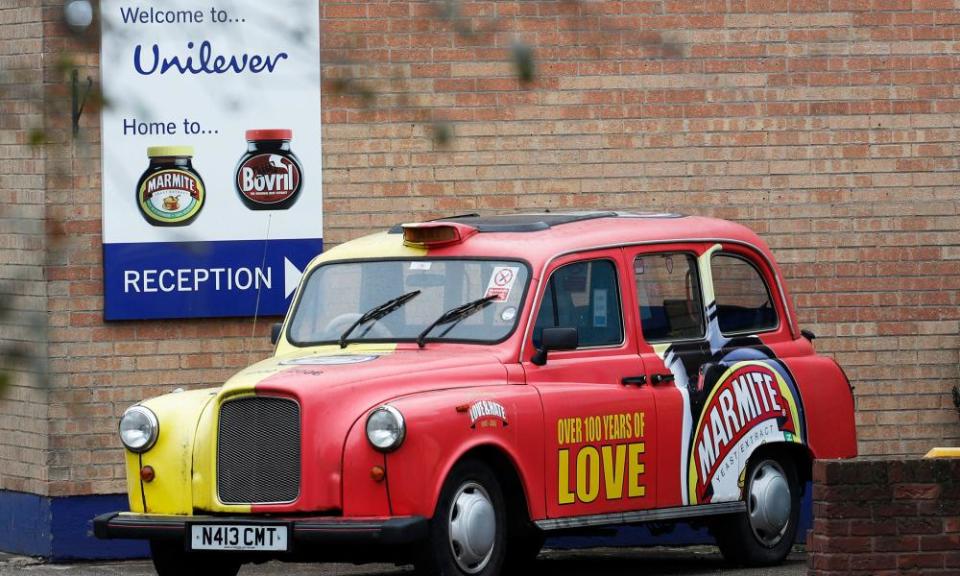Kraft Heinz withdraws Unilever takeover bid

The proposed £115bn takeover of Unilever by Kraft Heinz has been called off, just two days after the offer was announced.
The takeover of the Anglo-Dutch consumer goods giant would have been one of the largest deals in corporate history but was resisted at Unilever and had provoked political unease over British jobs. Unilever rejected the offer by the American firm on Friday, describing the approach as having “no merit, strategic or financial”.
Kraft Heinz was expected to return with a higher offer, but late on Sunday the two firms issued a surprise joint statement announcing no deal would go ahead. It said: “Unilever and Kraft Heinz hereby announce that Kraft Heinz has amicably agreed to withdraw its proposal for a combination of the two companies.
“Unilever and Kraft Heinz hold each other in high regard. Kraft Heinz has the utmost respect for the culture, strategy and leadership of Unilever.”
The US food giant had been preparing to meet top tier shareholders, which include BlackRock, Leverhulme Trust and Legal & General, to convince them to accept the deal.
But the strength of resistance to the proposal saw Kraft decide over the weekend to back away. As well as Unilever’s clear reluctance, unions had raised fears over jobs, and discussions had started with the business secretary, Greg Clark, over a move that appeared to have strong echoes of the takeover of Cadbury’s by Kraft in 2010, a deal singled out for criticism by Theresa May last year.
A spokesperson for Kraft Heinz said: “[Our] interest was made public at an extremely early stage. Our intention was to proceed on a friendly basis, but it was made clear Unilever did not wish to pursue a transaction.
“It is best to step away early so both companies can focus on their own independent plans to generate value. We remain focused on driving long-term value while always putting our consumers first.”
Unions had voiced fears over the 9,000 jobs in Britain that could be affected under a takeover of Unilever by Kraft Heinz, where billionaire investor Warren Buffet owns more than a quarter of the shares and which is also backed by 3G, a Brazilian private equity firm.
Unite, Britain’s biggest union which directly represents about 2,000 of the 7,500 Unilever staff in the UK, welcomed the news. A Unite spokesman said that while the union was pleased that Kraft Heinz had signalled their withdrawal, the bid illustrated a need to reform takeover rules: “It shows the need for a ‘Cadbury rule’ which takes into account the issues like jobs and consumers in these circumstances, so it’s not just down to how deep someone’s pockets are, to throw money at shareholders.”
The Cadbury rule is a reference to the controversial £11.5bn takeover of chocolate maker Cadbury by Kraft in 2010. Pledges to save factories were reneged on almost immediately, before the firm was spun off to form a separate firm, Mondelez, while customers believed the quality of products such as its Creme Egg were downgraded.
A source close to the bid earlier insisted there was “no comparison” between the Kraft Heinz company and its management team and the Kraft that took over Cadbury – but admitted that there would be stringent cost-cutting and “synergies” including job losses should Unilever be taken over.
Downing Street did not confirm reports that the prime minister had ordered top officials to examine the planned takeover of Unilever to see if it could merit government intervention. A spokesperson for the Department of Business, Energy and Industrial Strategy (BEIS), had said it was continuing to monitor the situation closely.
The bid of £115bn would have made it the second largest takeover in corporate history, beaten only by Vodafone’s $203bn (£163bn) takeover of Mannesmann in 2000. A combined Kraft-Unilever would have been valued at more than £200bn and control 3% of the global packaged food market, according to Euromonitor.
The share price in both firms may be expected to slide back on Monday, after surging on news of the offer on Friday. Buffett’s fortune was briefly boosted by another $5.7bn purely on his personal stake in Kraft Heinz, whose shares rose 10%, while Unilever shares rose 13.4% to a record high.
The takeover bid was fiercely resisted by the board, led by Paul Polman, the chief executive of Unilever, although he would have stood to earn almost £12m in shares under a sale. The Dutch CEO has made a name as an unusual advocate for sustainable business and global concerns such as poverty and climate change.

 Yahoo Finance
Yahoo Finance 